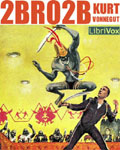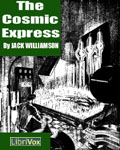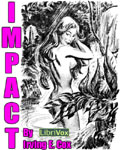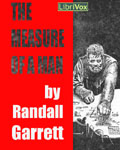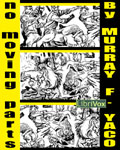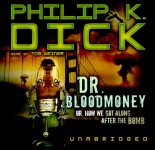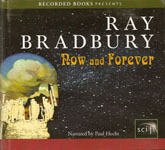
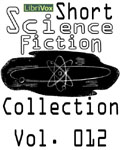 Short Science Fiction Collection Vol. 012
Short Science Fiction Collection Vol. 012
By various; Read by various
10 Zipped MP3 Files or Podcast – Approx. 4 Hours 22 Minutes [UNABRIDGED]
Publisher: LibriVox.org
Published: March 12, 2009
Science fiction (abbreviated SF or sci-fi with varying punctuation and case) is a broad genre of fiction that often involves sociological and technical speculations based on current or future science or technology. This is a reader-selected collection of short stories that entered the US public domain when their copyright was not renewed.
Podcast feed:
http://librivox.org/bookfeeds/short-science-fiction-collection-vol-012.xml
iTunes 1-Click |SUBSCRIBE|
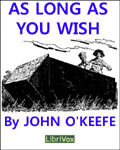 As Long As You Wish
As Long As You Wish
By John O’Keefe; Read by Joelle Peebles
1 |MP3| – Approx. 11 Minutes [UNABRIDGED]
Publisher: LibriVox.org
Published: March 12, 2009
From Astounding Science Fiction, June, 1955.
If, somehow, you get trapped in a circular time system . . . how long is the circumference of an infinitely retraced circle?
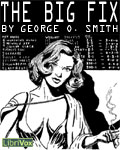 The Big Fix
The Big Fix
By George O. Smith; Read by Alan Winterrowd
1 |MP3| – Approx. 58 Minutes [UNABRIDGED]
Publisher: LibriVox.org
Published: March 12, 2009
Anyone who holds that telepathy and psi powers would mean an end to crime quite obviously underestimates the ingenuity of the human race. Now consider a horserace that had to be fixed…
From Astounding Science Fiction December 1959.
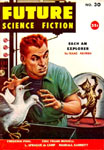 The Fourth Invasion
The Fourth Invasion
By Henry Josephs; Read by Tibbi Scott
1 |MP3| – Approx. 10 Minutes [UNABRIDGED]
Publisher: LibriVox.org
Published: March 12, 2009
Psychopathology has offered possible answers to why, from time to time, people in large quantities “see” strange things in the sky which manage to evade trained scientific observers, or conform to what is known about the behavior of falling or flying bodies. And mass hysteria is by no means a product of the present century. But—what if these human foibles were deliberately being exploited? From Future Science Fiction No. 30 1956.
Goliah
By Jack London; Read by Gregg Margarite
1 |MP3| – Approx. 57 Minutes [UNABRIDGED]
Publisher: LibriVox.org
Published: March 12, 2009
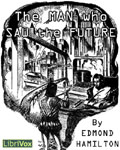 The Man Who Saw The Future
The Man Who Saw The Future
By Edmond Hamilton; Read by Gregg Margarite
1 |MP3| – Approx. 31 Minutes [UNABRIDGED]
Publisher: LibriVox.org
Published: March 12, 2009
“Jean de Marselait, Inquisitor Extraordinary of the King of France, raised his head from the parchments that littered the crude desk at which he sat. His glance shifted along the long stone-walled, torchlit room to the file of mail-clad soldiers who stood like steel statues by its door. A word from him and two of them sprang forward.” First published in Amazing Stories, October 1930. Later reprinted in the February 1961 issue of Amazing Stories.
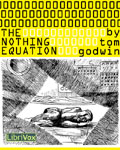 The Nothing Equation
The Nothing Equation
By Tom Godwin; Read by Janet Moursund
1 |MP3| – Approx. 20 Minutes [UNABRIDGED]
Publisher: LibriVox.org
Published: March 12, 2009
From Amazing Stories December 1957. The space ships were miracles of power and precision; the men who manned them, rich in endurance and courage. Every detail had been checked and double checked; every detail except—
 The Putnam Tradition
The Putnam Tradition
By Sonya Dorman; Read by Tibbi Scott
1 |MP3| -Approx. 15 Minutes [UNABRIDGED]
Publisher: LibriVox.org
Published: March 12, 2009
Through generations the power has descended, now weaker, now stronger. And which way did the power run in the four-year-old in the garden, playing with a pie plate? From Amazing Stories January 1963.
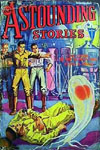 A Scientist Rises
A Scientist Rises
By D.W. Hall; Read by David Adamson
1 |MP3| – Approx. 19 Minutes [UNABRIDGED]
Publisher: LibriVox.org
Published: March 12, 2009
All gazed, transfixed, at the vast form that towered above them. From the November 1932 issue of Astounding Stories.
The Shadow And the Flash
By Jack London; Read by Gregg Margarite
1 |MP3| – Approx. 34 Minutes [UNABRIDGED]
Publisher: LibriVox.org
Published: March 12, 2009
 We Didn’t Do Anything Wrong, Hardly
We Didn’t Do Anything Wrong, Hardly
By Roger Kuykendall; Read by Joelle Peebles
1 |MP3| – Approx. 8 Hours 55 Minutes [UNABRIDGED]
Publisher: LibriVox.org
Published: March 12, 2009
After all—they only borrowed it a little while, just to fix it— From Astounding Science Fiction May 1959.
Posted by Jesse Willis

 Blake’s 7 fans can rejoice! B7 Productions has announced the next Blake’s 7 “The Early Years” audio drama CD. This is a prequel series story exploring the origins of one of the key B7 characters prior to her meeting Roj Blake. Jan Chappell, the original Blake’s 7 Cally, returns to the role she made famous back in 1978.
Blake’s 7 fans can rejoice! B7 Productions has announced the next Blake’s 7 “The Early Years” audio drama CD. This is a prequel series story exploring the origins of one of the key B7 characters prior to her meeting Roj Blake. Jan Chappell, the original Blake’s 7 Cally, returns to the role she made famous back in 1978. 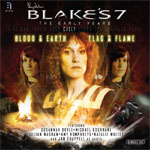 Blake’s 7 – Cally: Blood & Earth/ Flag & Flame
Blake’s 7 – Cally: Blood & Earth/ Flag & Flame









 With 9 volumes of short stories now out there’s no doubt there’s a plethora of SF listening available over on LibriVox.org. I love these collections, they have a good variety and not too much repetition …. oh wait, I take that last part back. It’s the constant repetition that is impairing these collections. LibriVoxateers, please stop recording Kurt Vonnegut’s 2BR02B. Otherwise, keep up the great work!
With 9 volumes of short stories now out there’s no doubt there’s a plethora of SF listening available over on LibriVox.org. I love these collections, they have a good variety and not too much repetition …. oh wait, I take that last part back. It’s the constant repetition that is impairing these collections. LibriVoxateers, please stop recording Kurt Vonnegut’s 2BR02B. Otherwise, keep up the great work!
